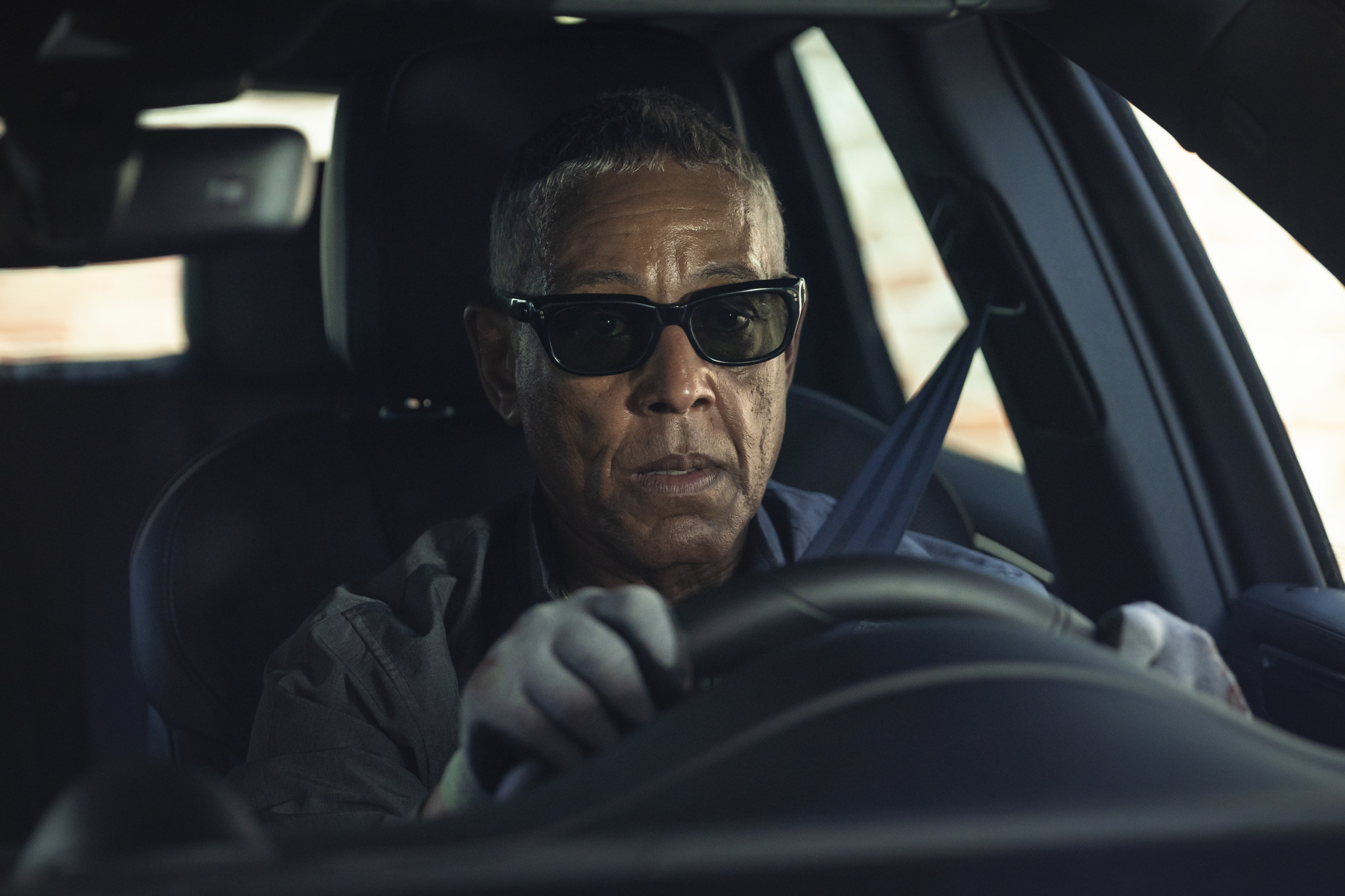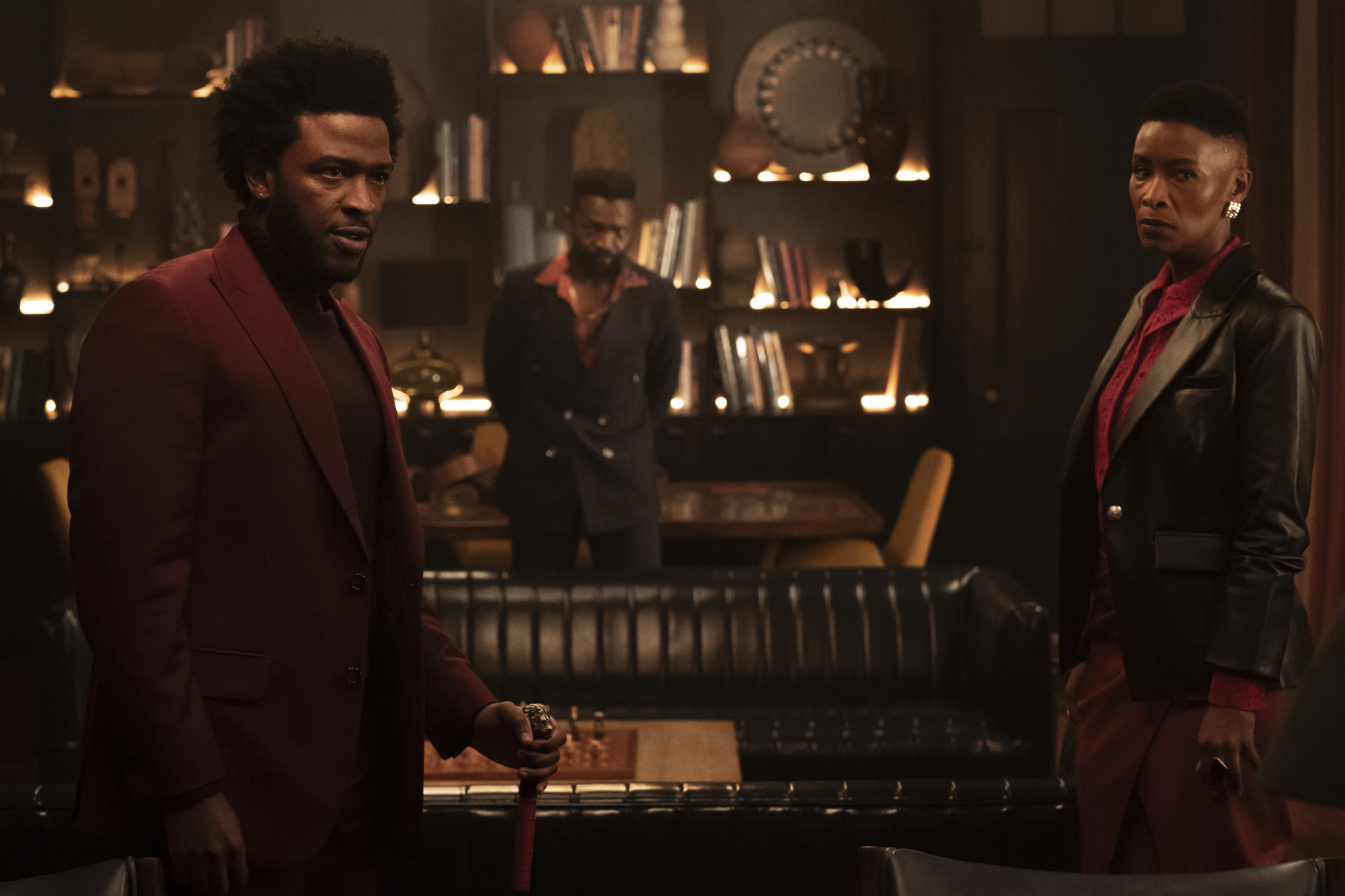
Giancarlo Esposito’s defining quality as an actor is a preternatural stillness that suggests sophistication, intelligence, and unshakeable self-possession. It’s what made his most iconic character, Breaking Bad and Better Call Saul’s fastidious drug-lord villain Gustavo Fring, so quietly fearsome. Gus has, in turn, set the template for many of Esposito’s subsequent roles. He has embodied the cold, amoral warlord Moff Gideon in The Mandalorian and the ruthless corporate executive Stan Edgar in The Boys. Earlier this month, in Guy Ritchie’s Netflix series The Gentlemen, he appeared as a sort of cartoon Fring—a richer, fussier meth mogul. When it comes to playing refined outlaws, Esposito has become Hollywood’s go-to guy.
The title character of Parish, a formulaic crime drama that premieres March 31 on AMC, fits that description. This time, however, executive producer Esposito’s smooth criminal is our hero. Gracián “Gray” Parish is fighting to save his New Orleans car service, while mourning a teenage son, Maddox (Caleb Baumann), whose murder remains unsolved. Gray has a past, and it catches up to him when an old cohort, Colin (Skeet Ulrich), offers the erstwhile getaway driver a one-off gig working for a gangster known as the Horse (Zackary Momoh). Desperate to keep his wife (Paula Malcomson’s Rose) and daughter (Arica Himmel’s Makayla) in their beloved home, he takes it. As anyone who has ever consumed gangster fiction in any medium could predict, extracting himself from the Horse’s organization will be quite a bit harder than Gray imagines.

Parish is essentially two shows in one. The fresher, more compelling of the pair follows Horse and his siblings, brash brother Zenzo Tongai (Ivan Mbakop) and shrewd sister Shamiso Tongai (Bonnie Mbuli), as they make power plays in a New Orleans criminal underworld controlled by well-connected locals and vie for the approval of their cutthroat father back home in South Africa. The echoes of Succession are fainter than you might expect. The Tongais are human traffickers, illegally importing fellow Africans to serve as cheap labor in the U.S. In an echo of the slave trade, and colonialism in general, that the series alludes to but never fully explores, they are perpetuating a system of white, Western supremacy that oppresses their countrymen.
Less captivating but more central to the plot is Gray’s “one last job” arc. He’s been sleepwalking through life since Maddox’s death, absorbing Makayla’s anger at his fixation on her brother and suffering disappointments like the bank’s rejection of his loan application. But his return to crime wakes him up. After gaining the Horse’s trust—in a relationship that threatens the scarily hot-headed Zenzo—through his typically Espositan expertise and discretion, Gray has to find a way to leave the Tongais without endangering his family. “Over and over, people keep backing me into a corner, and it’s gotta stop,” he growls, in a mid-season monologue that showrunners Eduardo Javier Canto and Ryan Maldonado apparently liked so much, they repurposed it as a voiceover for the opening scene of the premiere. “I’m tired of being a passenger in my own life.”

Based on the 2014 BBC drama The Driver, Parish hits all the obligatory crime-thriller beats. If you love car chases more than you hate genre clichés, this is the show for you. While it can’t compete, on an aesthetic level, with Esposito’s previous AMC projects, the series is more stylish than the average broadcast drama. The pace is odd; a subplot regarding local politics emerges too late, causing the six-episode season to sag in the middle, then squeeze in too many cliffhanger twists at the very end of the finale. The acting is great, although the dynamic Malcomson (Deadwood, Ray Donovan) feels a bit wasted as a wife who can be a fierce ally to her husband but otherwise seems to have few thoughts or desires of her own.
As for Gray, he’s the archetypal good man in a bad situation, forced to make impossible choices in order to keep what’s left of his family safe. Or he’s what happens when, instead of letting loneliness calcify his heart, Gus Fring chooses love over ambition. Either way, he’s a character we’ve seen too many times before, played with practiced precision by an excellent actor we too often see cast as versions of this same guy. The thing is, Esposito can be equally magnificent in the moments that showcase his underutilized range (see also: his lively turn as Adam Clayton Powell Jr. in Godfather of Harlem). Pushed past his limits, Gray lets his stoic veneer crack—and viewers glimpse the very different kind of Esposito performance we too rarely get to see.
More Must-Reads From TIME
- The 100 Most Influential People of 2024
- Coco Gauff Is Playing for Herself Now
- Scenes From Pro-Palestinian Encampments Across U.S. Universities
- 6 Compliments That Land Every Time
- If You're Dating Right Now , You're Brave: Column
- The AI That Could Heal a Divided Internet
- Fallout Is a Brilliant Model for the Future of Video Game Adaptations
- Want Weekly Recs on What to Watch, Read, and More? Sign Up for Worth Your Time
Contact us at letters@time.com